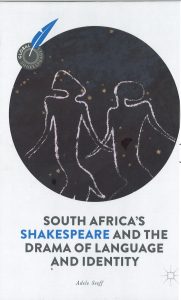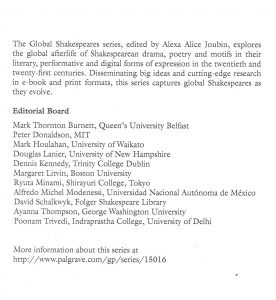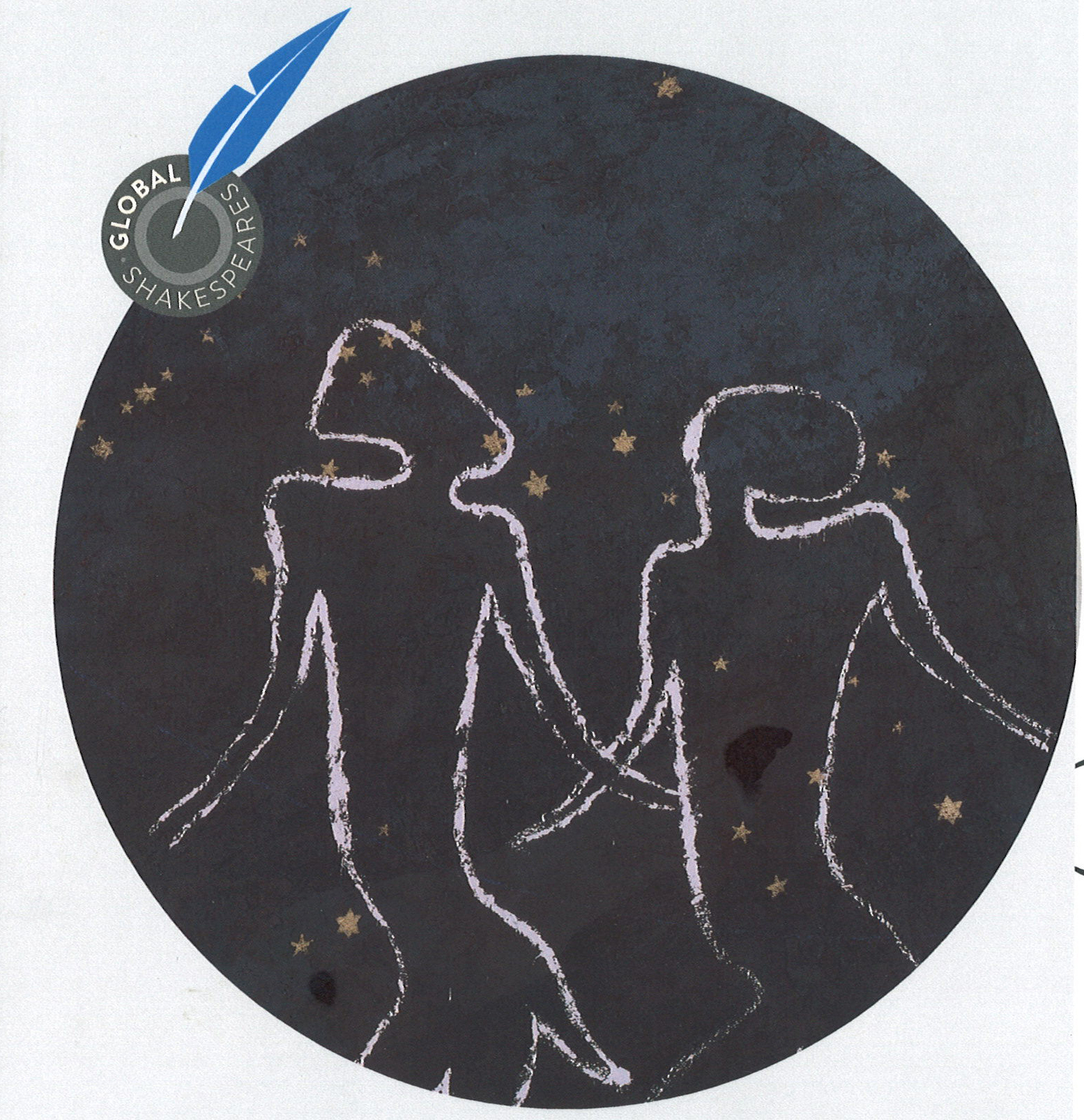Shakespeare’s role in England’s global expansion is often categorized as a conduit for Empire. For example, Shakespeare’s texts were performed in English for the entertainment of European traders in Calcutta and Bombay in 1775. However, his texts function in a much more complicated way than these earlier models of transmission from London to the peripheries. Performances of Shakespeare offer a lens through which we can view the movement of peoples and their languages and cultures.

South Africa’s Shakespeare by Adele Seeff in the book series Global Shakespeares (ed. Alexa Alice Joubin)
Adele Seeff’s book, South Africa’s Shakespeare and the Drama of Language and Identity, considers the linguistic complexities associated with Shakespeare’s presence in South Africa from 1801 to early twentieth-first century televisual updatings of the texts as a means of exploring individual and collective forms of identity. A case study approach demonstrates how Shakespeare’s texts are available for ideologically driven linguistic programs. Seeff introduces the African Theatre, Cape Town, in 1801, multilingual site of the first recorded performance of a Shakespeare play in Southern Africa where rival, amateur theatrical groups performed in turn, in English, Dutch, German, and French.
The book is part of the Palgrave Global Shakespeares series, edited by MIT Global Shakespeares co-founder Alexa Alice Joubin.
Chapter 3 offers three vectors of a broadening Shakespeare diaspora in English, Afrikaans, and Setswana in the second half of the nineteenth century. Chapter 4 analyses André Brink’s Kinkels innie Kabel, a transposition of Shakespeare’s The Comedy of Errors into Kaaps, as a radical critique of apartheid’s obsession with linguistic and ethnic purity.
Chapter 5 investigates John Kani’s performance of Othello as a Xhosa warrior chief with access to the ancient tradition of Xhosa storytellers. Shakespeare in Mzansi, a televisual miniseries uses black actors, vernacular languages, and local settings to Africanize Macbeth and reclaim a cross-cultural, multilingualism. An Afterword assesses the future of Shakespeare in a post-rainbow, decolonizing South Africa.
- The book focuses on key Shakespearean productions, two during the period of apartheid and one in a democratic South Africa, in order to explore the production of identity through linguistic practice
- The chapters look at linguistic history and how Shakespeare’s texts are harnessed in the service of promoting a linguistic program
- Seeff combines a sociolinguistic approach with performance studies, Shakespeare Studies, the Shakespeare diaspora, South African Studies, history, Critical race studies, and cultural studies
Shakespeare’s role in England’s global expansion is often categorized as a conduit for Empire. For example, Shakespeare’s texts were performed in English for the entertainment of European traders in Calcutta and Bombay in 1775. However, his texts function in a much more complicated way than these earlier models of transmission from London to the peripheries. Performances of Shakespeare offer a lens through which we can view the movement of peoples and their languages and cultures.

South Africa’s Shakespeare by Adele Seeff in the book series Global Shakespeares (ed. Alexa Alice Joubin)
Adele Seeff is an independent scholar and lecturer. From 1986 to 2011, she directed the Centre for Renaissance & Baroque Studies, University of Maryland, College Park.





